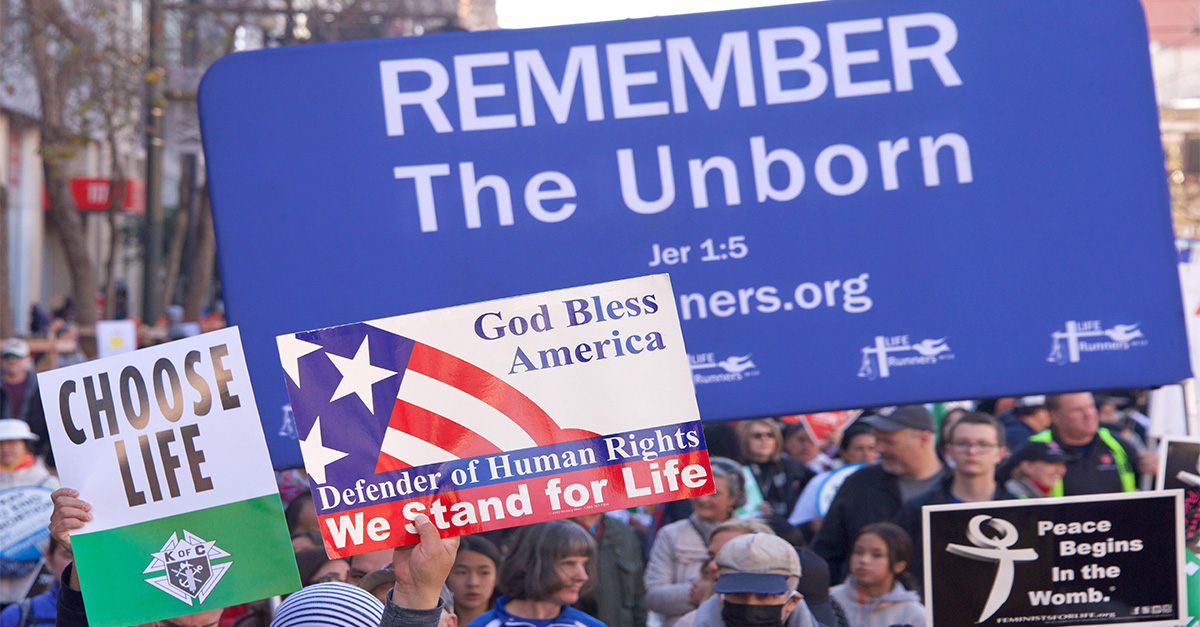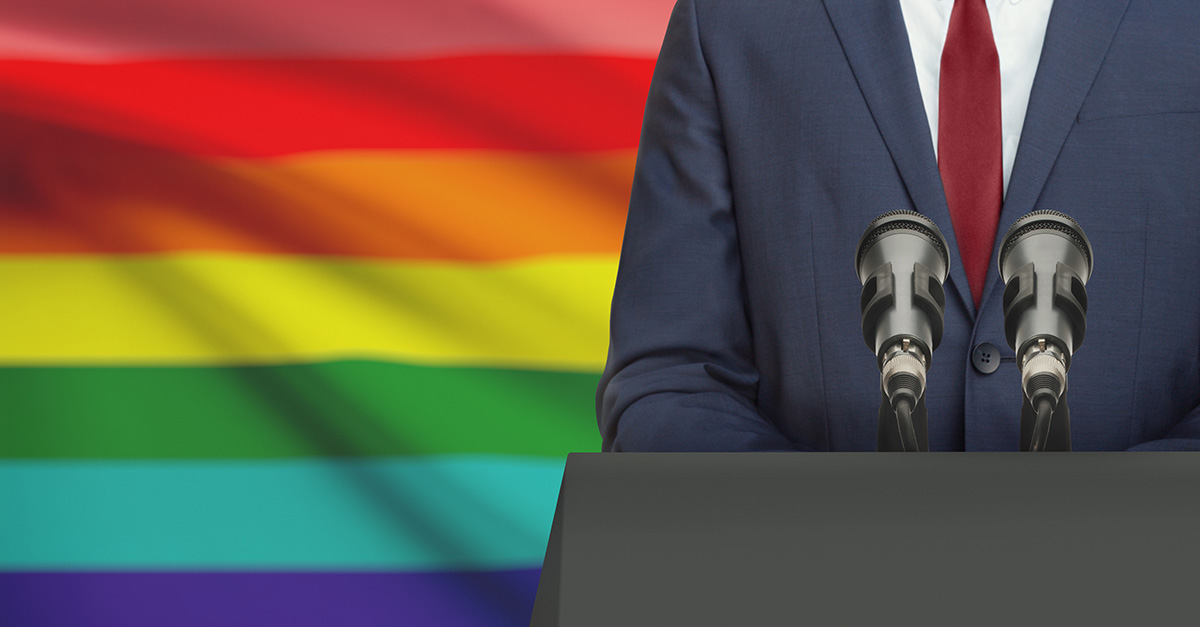


Get a free copy of Parental Rights & Education when you subscribe to our newsletter!

Christians must hold to the Supremacy of Christ in all things. Our loyalty isn’t to a party or to a candidate, but to Christ alone. And life is non-negotiable.
There was no more surprising and disappointing news than the statement on Monday from former President Donald Trump, the presumptive Republican nominee as candidate for President, speaking to his long-time supporters and potential voters, on his official position concerning abortion and IVF in the 2024 election cycle.
In a four-minute video released on Monday, President Trump reassured the public that he values life and that he wants to promote policies that support American families and make it easier for mothers to have babies. The former president was quick to affirm IVF and the availability of fertility treatments in all 50 states. He then heaped praise on the Alabama legislature for their recent work to pass legislation to make IVF available. And that is not insignificant for a policy position. A recent special election in Alabama’s 10th House district flipped a seat from Republican to Democrat on the issue of abortion and IVF. It does matter where you land on the issue of abortion even in deep red Alabama, even in 2024.
Taking a turn, President Trump then reminded the public that he proudly ended Roe v. Wade, something most conservatives and many legal scholars through the years agreed needed to go. By contrast, Trump stated clearly that Democrats are far more radical on abortion, including late-term and post-birth abortion, which he referred to as “execution.” While Democrats might dispute that characterization, no one can dispute the policy difference between Republicans and Democrats when it comes to abortion.
But here is where the controversy entered into the fray. Trump backed off of a previous promise to pro-life and conservative supporters concerning a nationwide ban on abortion at 20 weeks, or even 15 weeks. This is something he earlier promised to sign if it hit his desk. Trump backed off that statement and said that it should ultimately be a matter for the states to decide. He also said that, just like Ronald Reagan, he is in favor of exceptions for abortion like “rape, incest, or the life of the mother.”
To close his argument, he said, “You must follow your heart…your religion, or your faith.” Abortion is a matter of the “will of the people.” He said that people must vote on this issue at the state level. President Trump also made clear the implications of this policy position by saying, “You must win elections in order to restore our culture” and “to save our country.”
Winning the election this fall was really the closing argument that formed the entire basis of his public statement in the first place. Just as Joe Biden is trying very hard to curry votes with factions of his own party who don’t support Israel and have far more radical policy demands, Donald Trump also faces a challenge with independent and suburban women who are not pro-life and want abortion legal on some level. That is politics as usual. This statement should be seen as a pragmatic approach to politics and not to principles.
The public backlash following this statement was swift and necessary. Long-time pro-life organizations, conservative leaders, and pundits all registered their criticism of Trump’s statement. Other moderate voices, who have never really been principled on the issue of life, were openly supportive and perhaps relieved that this statement seemed far more practical and put victory in November that much closer.
There is no question that the statement will have an impact with conservative and religious voters in the fall; some may even stay home or vote for another candidate.
I for one was disappointed to hear the former President speak about abortion as a matter of the will of the people and to hide behind states’ rights when, after all, that is exactly how slavery was defended for such a long time. The promise to expand IVF treatment is hardly a consolation for those seeking to end abortion. Virtually no pro-life organization committed to a consistent ethical and biblical framework for life at conception supports current IVF treatments on the same grounds for which they oppose abortion.
Adding to this controversy, the Arizona Supreme Court ruled on Tuesday afternoon to uphold an anti-abortion law that dates all the way back to the Civil War. That law makes it a felony for providers to perform abortion, a violation that is punishable by two to five years in prison. This ruling could enact a ballot measure for voters to decide on abortion rights in Arizona in the upcoming presidential election.
Arizona Attorney General Kris Mayes was quick to promise that “no woman or doctor will be prosecuted under this draconian law,” and called it “an affront to freedom.” Meanwhile, former gubernatorial candidate and current Republican Senate candidate Kari Lake was quick to distance herself, saying, “I oppose today’s ruling,” before adding, “I wholeheartedly agree with President Trump. This is a very personal issue that should be determined by each individual state and her people.”
Whether you agree or disagree with former President Trump, his public statement is already shaping Republican policy on the issue of life and abortion in 2024.
At the same time, it is important to remember that on the other side of this issue is the current President Joe Biden, who has already promised federal protections on abortion in all 50 states if a bill ever makes it to his desk. There are currently 15 states (including Arizona) that have a ban on abortion and up to 25 states that have restrictions. President Joe Biden would erase all those bans if a Democrat-controlled Congress were to successfully pass legislation.
It also cannot be overstated how the current Justice Department under Biden has weaponized the FACE Act to go after pro-life advocates who hold prayer vigils on sidewalks outside of abortion clinics.
The obvious bad news in this week’s announcement is that there are no principled pro-life candidates in this election between President Joe Biden, Independent candidate Robert Kennedy Jr., and former President Donald Trump. But among the three candidates, only one was responsible for appointing three Supreme Court justices who struck down Roe v. Wade. Neither Reagan, Bush 1, nor Bush II were successful in nominating consistent justices on the issue of Roe, and this is the legacy Donald Trump will always have in the pro-life movement.
So how should Christians think about this?
Christians must hold to the Supremacy of Christ in all things. Our loyalty isn’t to a party or to a candidate, but to Christ alone. And life is non-negotiable. Let’s be clear: Abortion is never medically necessary, and an innocent baby that is conceived in rape or incest should not be killed for a crime that it did not commit. A person is always a person, no matter how small. Dr. Seuss taught us that.
Christians must work to protect life and advance those protections. I want to make clear that I am not endorsing any candidate in this presidential race. Christians already know the three candidates and know what they have said and, more importantly, what they have done and what they will do on the issue of life. Christians must apply a sense of biblical realism using wisdom and judgment in making their decision. This includes looking at the proposed policies of all three candidates in this race and their lasting impact.
Naivety is not an option when considering life and death. It is time for real pro-life advocates to stand up.
If you like this article and other content that helps you apply a biblical worldview to today’s politics and culture, consider making a small donation here.

Notifications